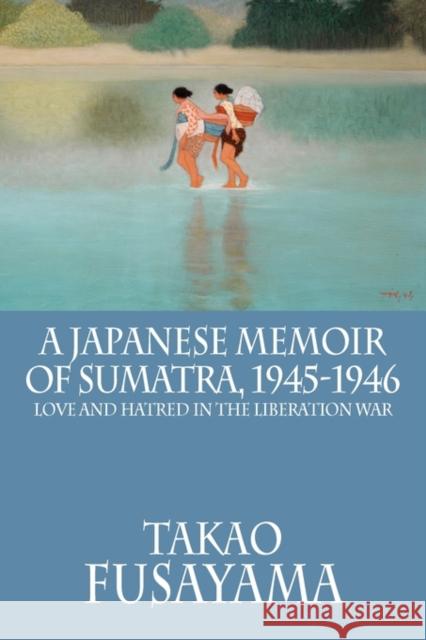A Japanese Memoir of Sumatra, 1945-1946: Love and Hatred in the Liberation War » książka
A Japanese Memoir of Sumatra, 1945-1946: Love and Hatred in the Liberation War
ISBN-13: 9786028397193 / Angielski / Miękka / 2010 / 228 str.
Dr. Takao Fusayamas memoir was first brought to our attention by Louis Allen, the well-known English historian of World War 2 and author of the classic account of the Allied victory in the Pacific, End of the War in Asia. Dr. Fusayama, an eminent professor of dentistry in Tokyo, in his search to obtain a copy of Allens book, then out of print, spent a couple of days with Louis Allen at his home in Durham in the northeast of England, about four years ago. Fusayama recounted his experiences as a signals officer in the Japans Imperial Guard Division to Allen, who even persuaded his guest to talk over the telephone with one of the British officers who had interrogated him after Japans surrender more than forty years earlier. While in Sumatra Fusayama had become involved with the Indonesian war of independence, and, as Allen wrote: "All this he has not only written up in Japanese, but hes produced a typescript, about 50,000 words, I reckon, on this period of the surrender and the various modus vivendi he and the other Japanese had to contrive in order to walk the tightrope between obeying the surrender orders to us and keeping the friendship of the locals whom theyd, in their view, liberated from the Dutch. Its an interesting document on this period, and he is an intelligent observer." Through the good offices of Dr. Peter Carey at Oxford, Louis Allen finally submitted Dr. Fusayamas memoir to Cornell Modern Indonesia Project, offering to write an introduction for it. Sadly, Allen died in December 1991, long before we were able to prepare Dr. Fusayamas memoir for English publication. Instead, Dr. Saya Shiraishi, who is currently teaching at Cornell, has provided us with an interesting introduction from a historical perspective, throwing light on the importance of this memoir for an overall view of this period in the history of Japan and Indonesia. Dr. Shiraishi has herself researched and written on the Japanese occupation of Sumatra, and during the 1970s she interviewed many Japanese army veterans, both in Sumatra and Japan, who had participated in the occupation of Sumatra and its aftermath.One of our chief reservations in publishing the memoir lay in the authors description of it as a "documentary novel," but we discovered that the "fictions" in the narrative relate mainly to Dr. Fusayamas dramatization of the action by putting into direct speech his memories of the general tenor of his conversations with some of the major protagonists. As he notes in his Preface, he recorded his recollections immediately after his repatriation to Japan, and it is evident that his rendition of the events he witnessed are true to his perceptions at the time. Dr. Fusayama has not changed the names of the major historical actors involved, and, as he reassured us:"In reality fictional names were used only for Jusuf and his lover, Merry. Jusuf was killed in the war but his relatives are alive. Merry is also alive somewhere in Holland. Since Jusuf was suspected to be related with enemy, I do not like to embarrass them by disclosing the real names. This hiding will not affect the history because they did not play any significant role."Dr. Fusayamas memoir offers an unusual and illuminating account of this period in Sumatras history.











